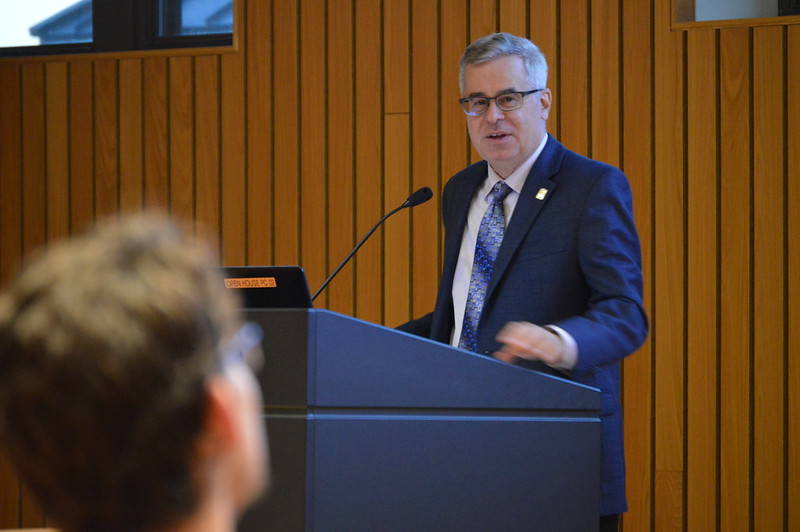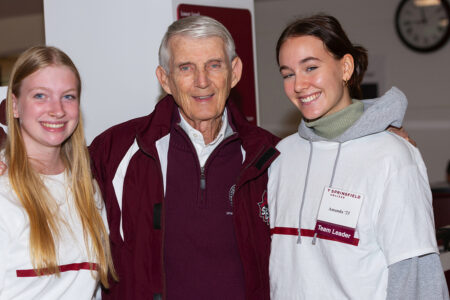
Each year, Springfield College joins colleges and universities across the country in observing Constitution Day. On Sept. 17, 1787, delegates attending the Constitutional Convention in Philadelphia signed the final draft of the United States Constitution after four months of debate, drafting, and revision. Since 2004, all schools receiving federal funds have observed Constitution Day in some form during the week of, or close to, Sept. 17.
This year’s program, “War Powers: How the Constitution, International Agreements, and Public Opinion Set the Framework for U.S. Action in Ukraine,” was hosted by Mark J. Rozell, PhD, Ruth D. and John T. Hazel Chair in Public Policy at George Mason University. The presentation was held in the Harold C. Smith Presentation Room, Stitzer Welcome Center at Judd Gymnasium.
Rozell went into detail about how the U.S. response to war in Ukraine exposes many of the limitations on President Biden’s exercise of the war power. Constitutional constraints, public opinion in an election year, and international commitments and threats all tie Biden’s hands. Rozell discussed how Biden has navigated this complex environment and how it could have a major impact on the war and his presidential legacy.
“This was a really timely topic, especially with mid-term elections, but we were able to tie this topic into how it is effected by the constitution,” said Rozell. “I enjoyed bringing my knowledge on this topic to Springfield College, and I really enjoyed my experience on the campus.”
Rozell is the founding dean of the Schar School of Policy and Government at George Mason University. He joined the Mason faculty in 2004. Prior to that, he was Ordinary Professor and chair of the Department of Politics at The Catholic University of America in Washington, D.C. He holds a PhD in politics from the University of Virginia. Rozell is the author or co-author of 11 books, editor of 21 additional books, and author of numerous academic articles on various topics in American government and politics. His research specializations include the U.S. presidency, separation of powers, and the intersection of religion and politics.
The evening was presented by the Department of Humanities and Social Sciences with support from the dean of the School of Arts and Sciences and the Office of the Provost.







